15 Films That Make Toxic Behavior Look Romantic
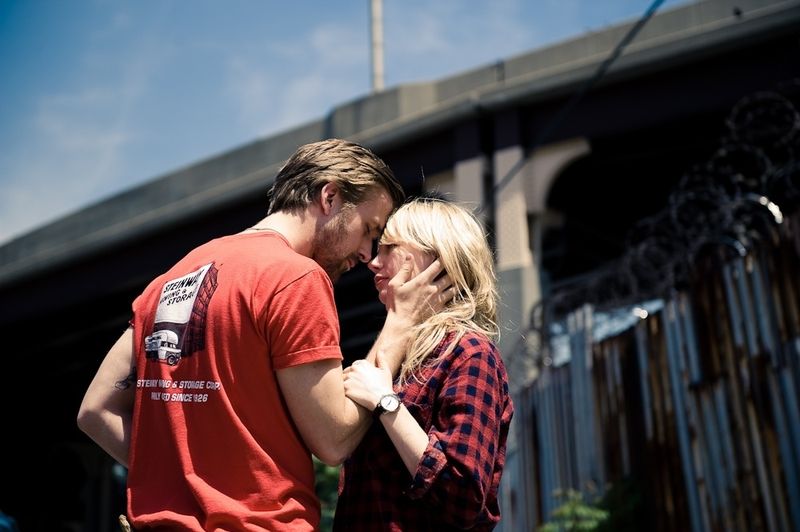
Movies have a way of making us fall in love with characters and their relationships, even when those relationships are far from healthy.
Many popular films dress up jealousy, manipulation, and control as signs of true love, leaving audiences swooning over behaviors that would be red flags in real life. Understanding how Hollywood glamorizes toxic dynamics can help us recognize what real, healthy love should look like.
1. Gone Girl
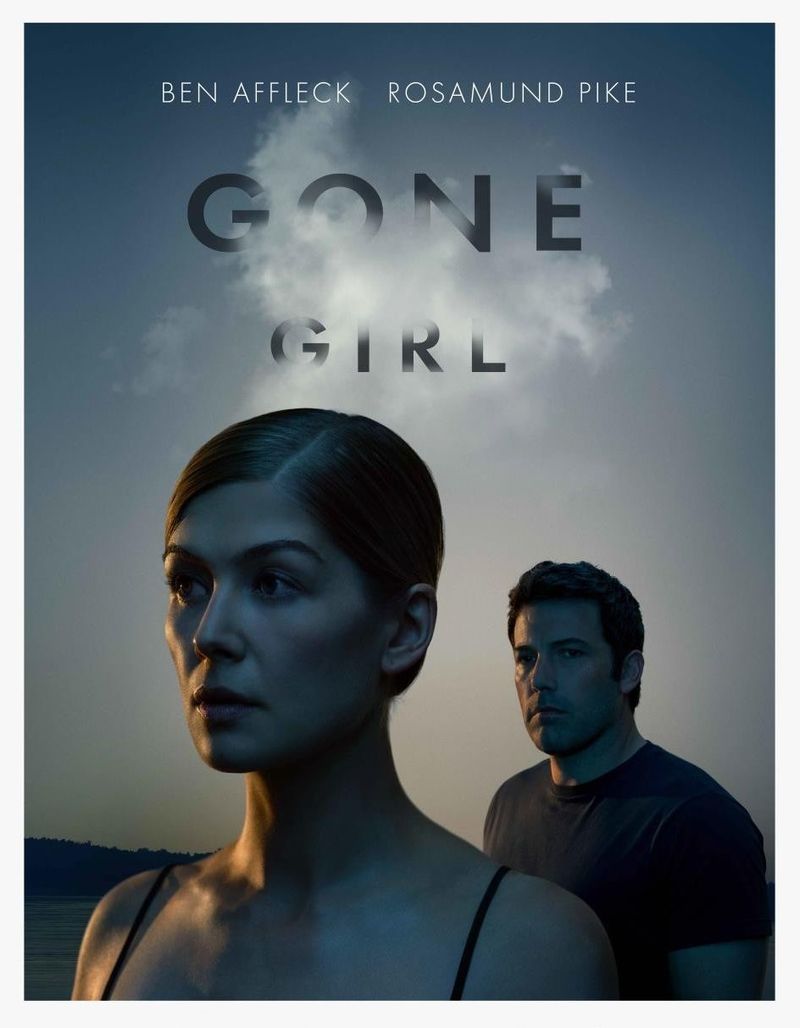
Manipulation reaches terrifying heights when Amy Dunne decides to frame her husband for murder as revenge for his infidelity. The film presents a marriage built on lies, control, and psychological warfare that escalates into violence. Nick isn’t innocent either, but Amy’s calculated cruelty transforms their relationship into a nightmare scenario.
What makes this particularly disturbing is how Amy uses pregnancy and public perception as weapons. She orchestrates an elaborate scheme that destroys lives without remorse. The ending suggests they’ll stay together, trapped in mutual toxicity.
This twisted tale shows how obsession and revenge can masquerade as passion, making viewers question whether any love existed at all.
2. Blue Valentine
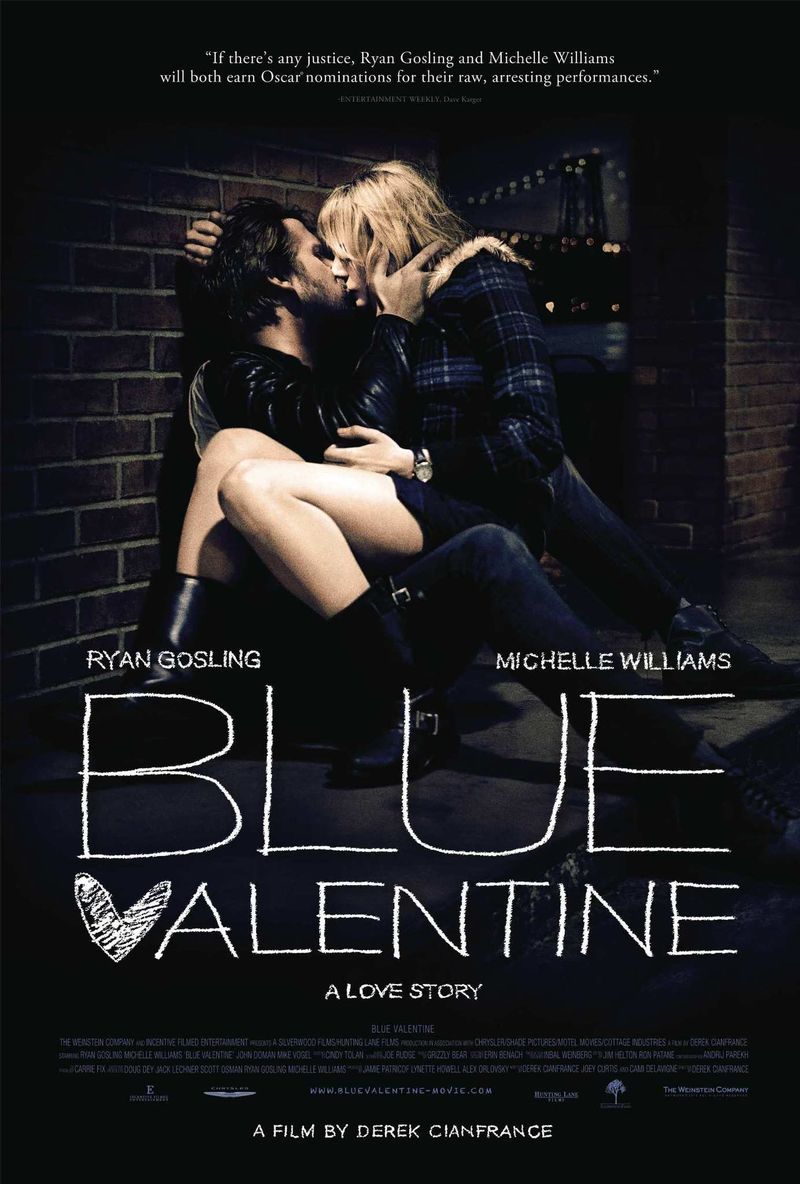
Years of fights, drinking, and emotional distance slowly erode Dean and Cindy’s bond. As Dean leans more on Cindy for support, she becomes frustrated by his stagnation. Their romance is a portrait of two people drifting apart while holding onto the nostalgia of what once was.
The film romanticizes their early passion while showing how it couldn’t sustain a real partnership. Dean’s alcoholism and refusal to grow up create resentment that poisons everything. Cindy’s emotional withdrawal makes communication impossible.
Watching their marriage collapse feels raw and real, but it also suggests that intense early attraction justifies staying in a dying relationship far too long.
3. Twilight
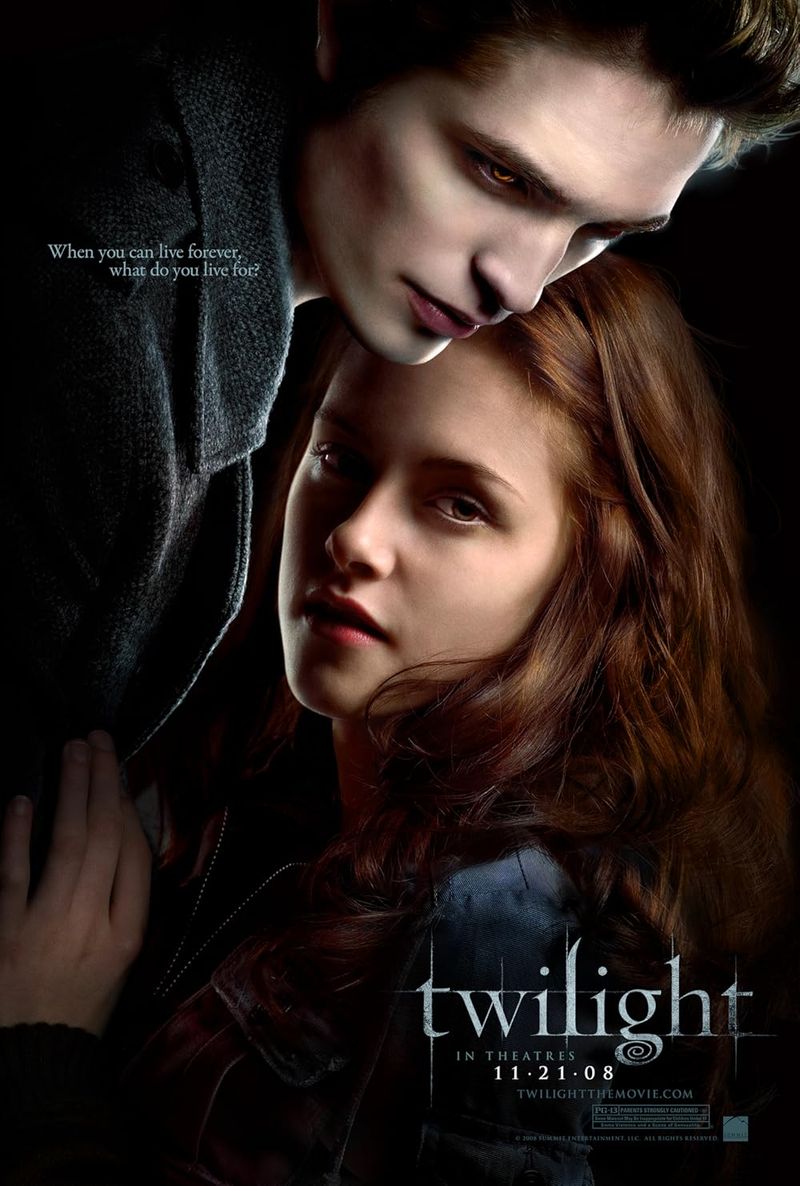
Edward Cullen watches Bella sleep without permission, controls who she spends time with, and constantly tells her how dangerous he is for her. Despite these massive red flags, the story frames his behavior as protective and romantic. Bella becomes so obsessed with Edward that she loses interest in everything else, including her friends and hobbies.
When Edward leaves, Bella falls into deep depression and starts risking her life just to see visions of him. The entire saga normalizes codependency and possessiveness. Jacob’s forced kiss and emotional manipulation add another layer of toxicity.
Generations of young readers learned that controlling behavior equals true love from this vampire romance.
4. Grease
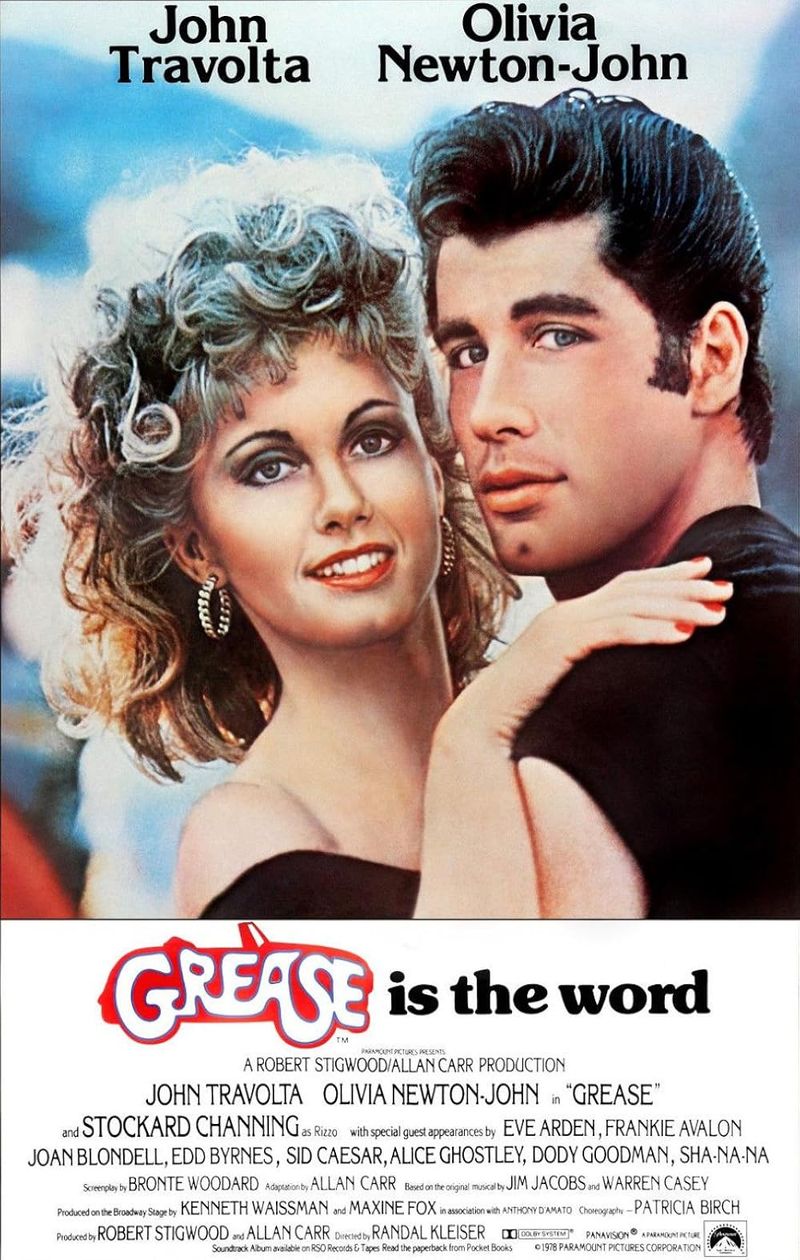
In an effort to win Danny back, Sandy transforms from a kind, wholesome girl into someone who smokes and dresses provocatively. The narrative seems to suggest that self-change is required to be loved. At the same time, Danny struggles with his friends’ influence, behaving distant and harsh toward her.
Their relationship revolves around pretending to be someone they’re not to impress each other. The famous ending celebrates Sandy’s makeover as the solution to their problems. Neither character learns to be authentic or communicate honestly.
Catchy songs and fun dance numbers distract from the fact that this relationship teaches terrible lessons about self-worth and authenticity.
5. Beauty and the Beast
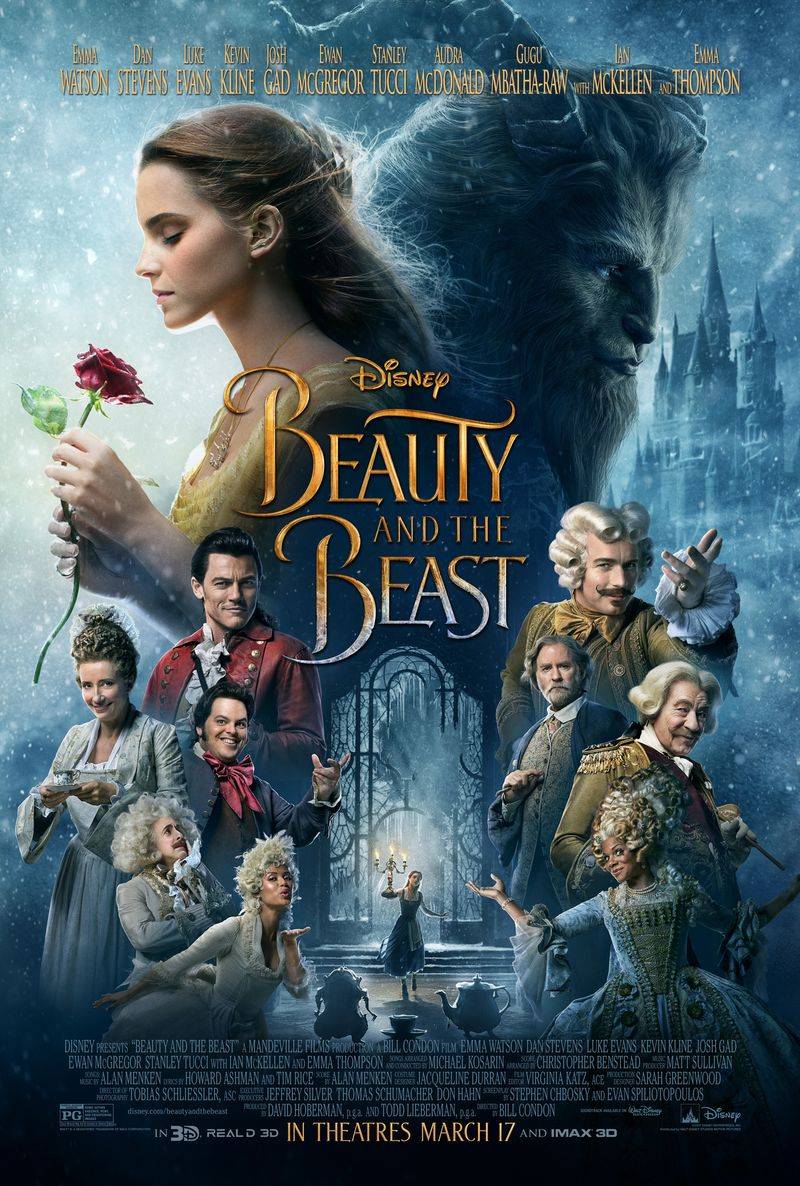
Belle develops feelings for her captor after he imprisons her father and then holds her hostage instead. The Beast’s anger issues lead to violent outbursts and destroyed furniture, yet Belle is expected to see past his behavior. The story suggests that love can fix an abusive person if you just stay patient and kind enough.
Stockholm syndrome gets a fairy tale makeover as Belle gradually falls for someone who literally locked her in a castle. The Beast does eventually change, but only after Belle has already started caring for him. His transformation rewards her emotional labor.
Children grow up learning that angry, controlling partners might change if you love them enough, which is a dangerous lesson.
6. How to Lose a Guy in 10 Days
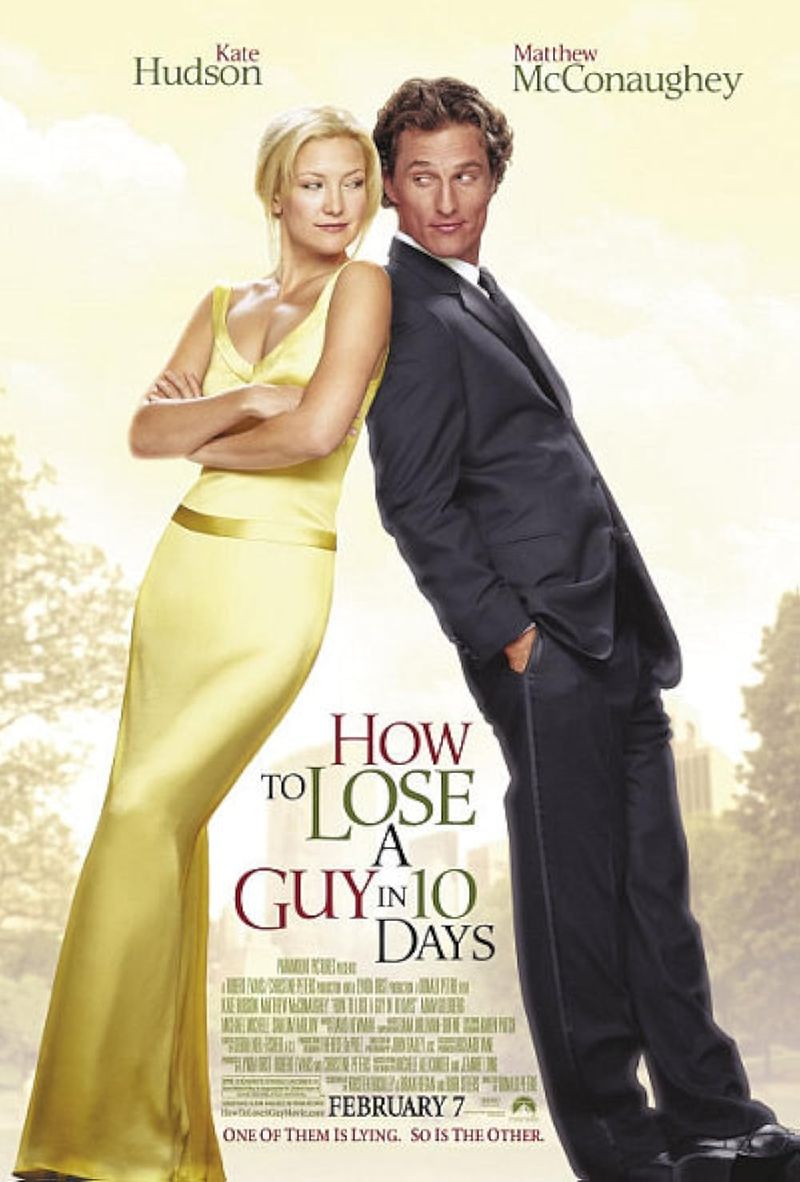
Their relationship is built on lies from the start: Andie and Ben use each other to gain an advantage at work. She feigns annoyance and clinginess to repel him, while he puts on a false persona to make her fall in love. There’s no real bond between them—only deception and career-driven motives.
When the truth comes out, they’re both hurt and angry, yet the movie treats this as a minor obstacle. The ending suggests they’ll overcome these trust issues simply because they have chemistry. Neither character faces real consequences for their dishonesty.
This romantic comedy normalizes starting relationships with lies and game-playing instead of honest communication and mutual respect.
7. Bridget Jones’s Diary
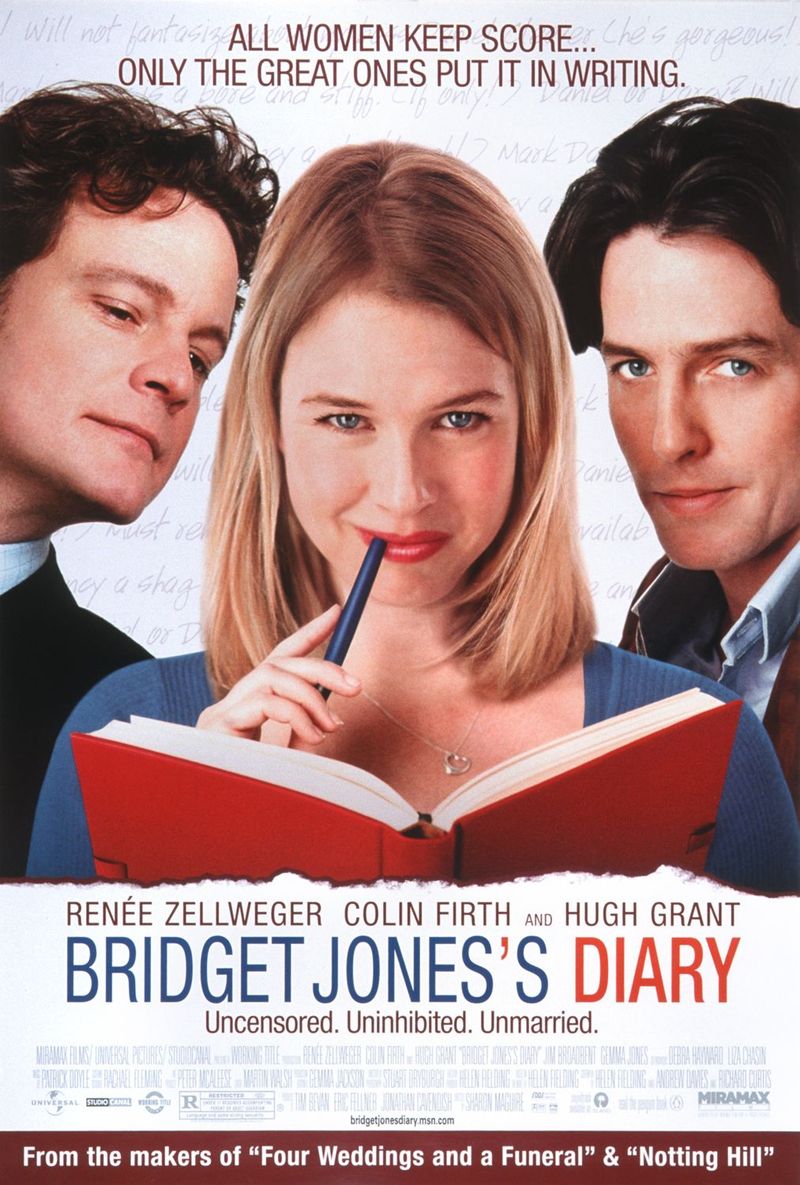
Mark Darcy initially comes across as judgmental and rude, criticizing Bridget’s appearance and lifestyle choices. Bridget obsesses over her weight and constantly feels inadequate, seeking validation from men. Daniel Cleaver manipulates her emotions by being hot and cold, yet she keeps going back to him.
The film portrays Bridget’s self-doubt and poor choices as charming quirks rather than signs of low self-esteem. Mark’s eventual declaration of love suggests that women should wait for critical men to finally appreciate them. The love triangle creates unnecessary drama based on miscommunication.
While funny and relatable, the movie reinforces ideas that women need to change themselves and that persistence in pursuing someone eventually pays off.
8. The Notebook
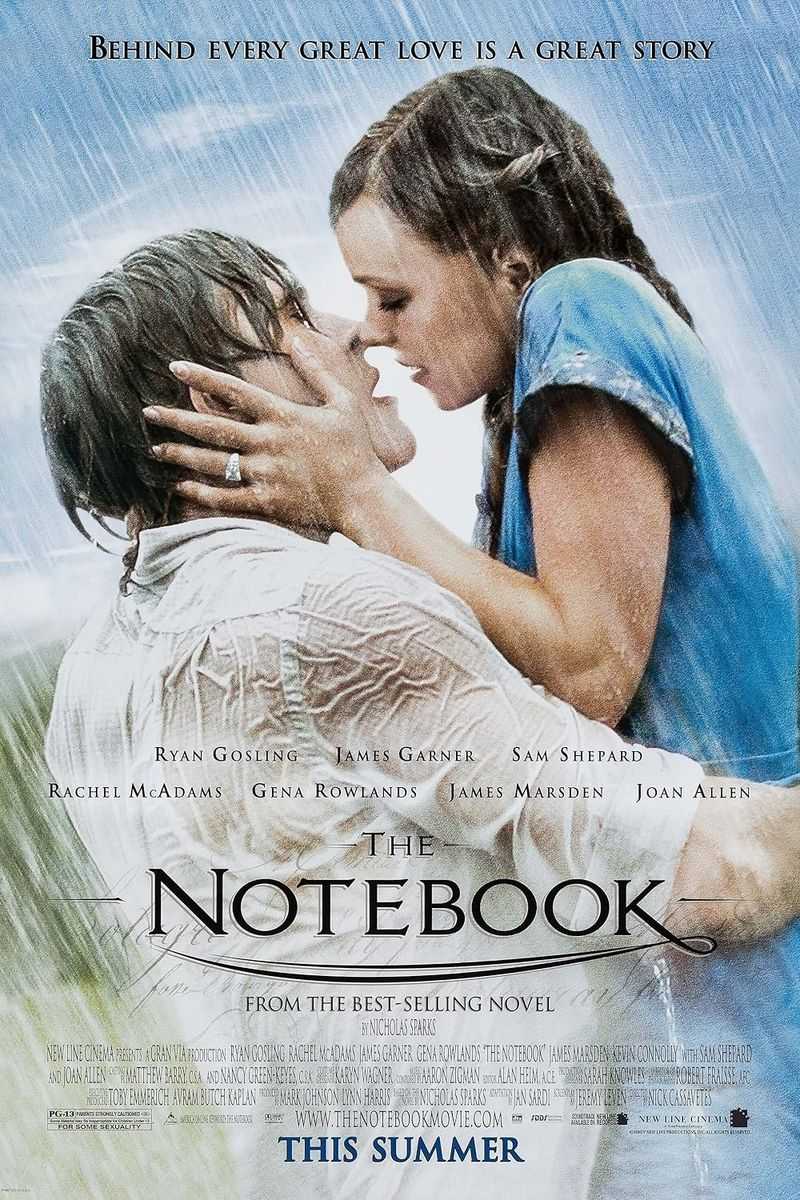
When Noah threatens to drop from a ferris wheel to force Allie into a date, the film paints it as a sweeping romantic moment rather than the manipulation it is. Their love story continues in the same pattern: constant conflict, dramatic breakups, and equally dramatic returns.
Allie cheats on her fiancé with Noah, which the film portrays as following her heart. The passionate arguments and intense emotions get confused with deep love. Their story suggests that toxic patterns are acceptable if the feelings are strong enough.
Millions of viewers consider this the ultimate love story, not recognizing the coercion and volatility that define their relationship from the very beginning.
9. The Age of Adaline
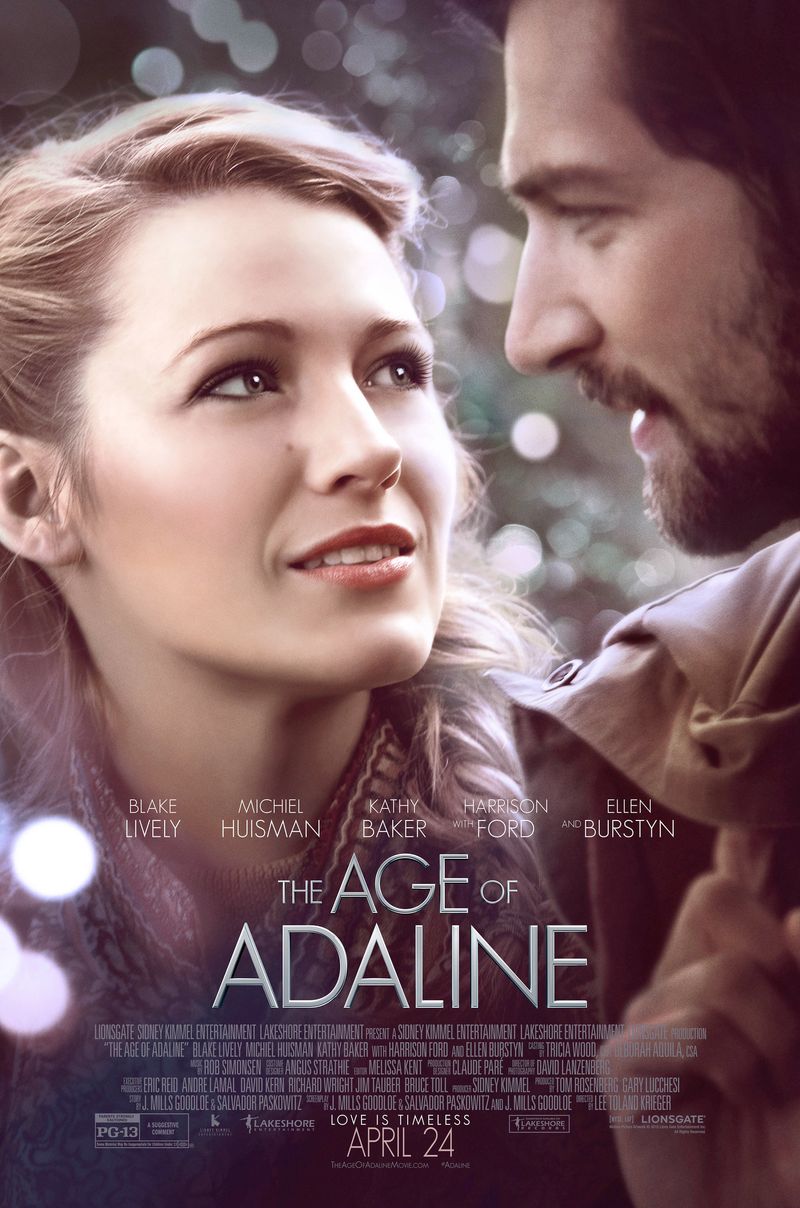
Adaline keeps massive secrets from Ellis, building their relationship on lies about her identity and past. She plans to disappear without explanation, showing a pattern of running away rather than being honest with partners. Ellis pursues her aggressively even when she repeatedly says no, which the film frames as romantic persistence.
The complicated situation with Ellis’s father, who dated Adaline decades earlier, creates uncomfortable dynamics. Adaline’s inability to be vulnerable or truthful prevents real intimacy. Her immortality becomes an excuse for avoiding emotional connection.
The movie suggests that secrets and dishonesty are acceptable in relationships as long as you have a good reason, and that ignoring someone’s boundaries shows true devotion.
10. Closer
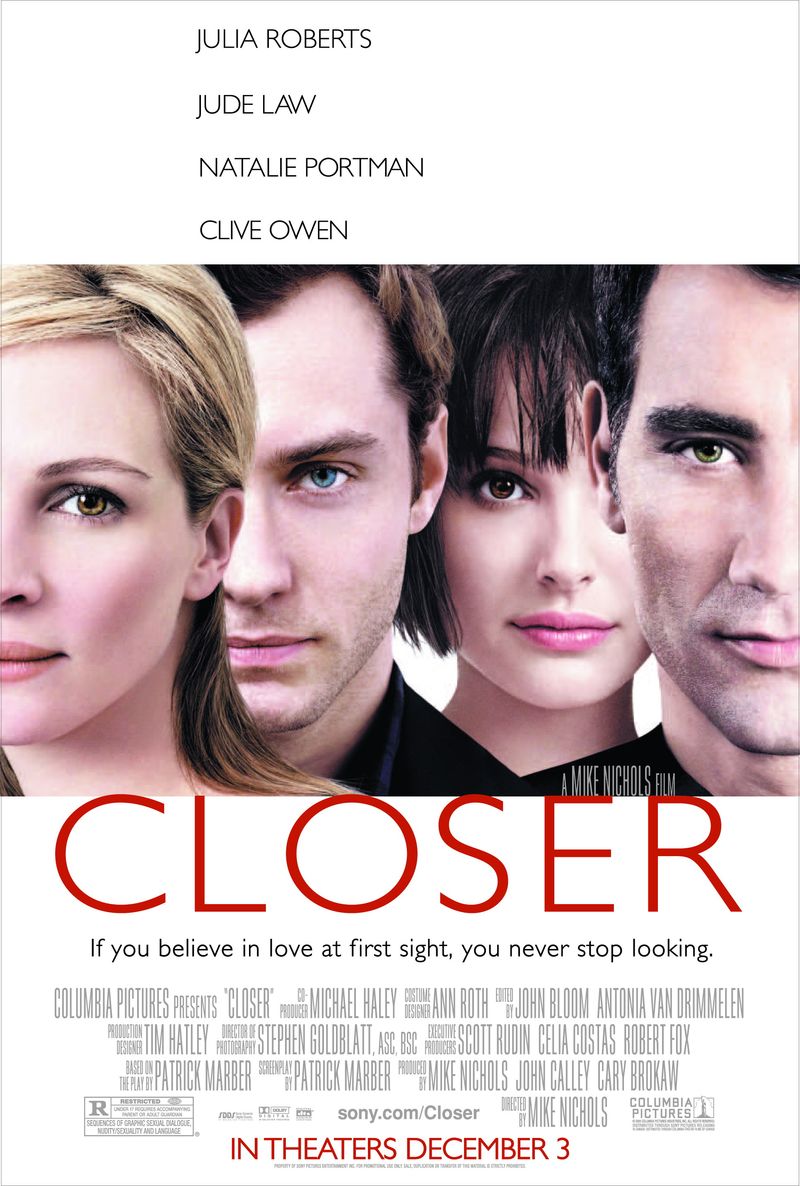
Everyone in this film lies, cheats, and emotionally manipulates everyone else in a tangled web of betrayal. Dan pursues Anna while still with Alice, then becomes possessively jealous when she shows interest in Larry. The characters use love as a weapon, deliberately hurting each other through affairs and cruel honesty.
Larry tricks Dan online to get information, then steals Anna away partly out of revenge. Alice lies about her identity from the beginning. The relationships consist of power struggles rather than genuine affection or care.
Raw dialogue and intense performances make the toxicity feel profound and meaningful, confusing cruelty with emotional depth and passion with authentic connection between partners.
11. Eternal Sunshine of the Spotless Mind
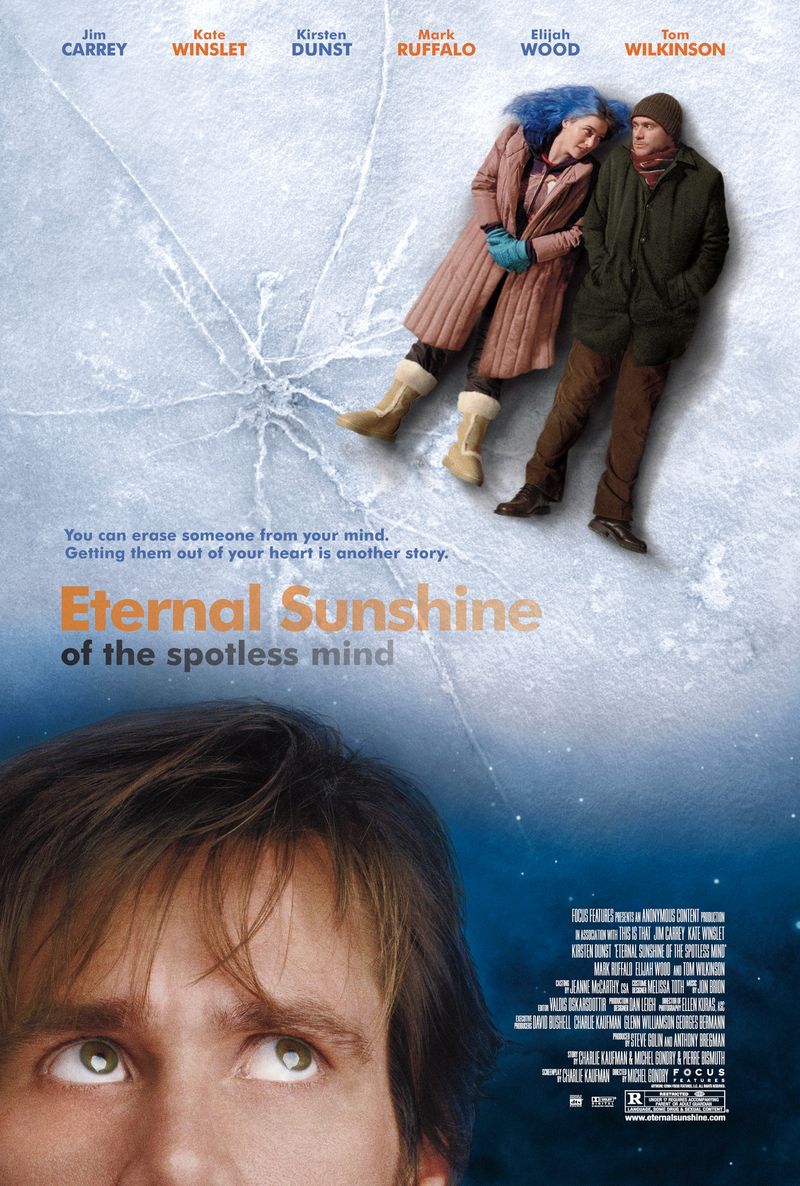
Joel and Clementine have such a dysfunctional relationship that they both decide to erase each other from their memories. Their impulsive decisions, poor communication, and inability to work through problems drive them to extreme measures. Clementine erases Joel first without telling him, which is a betrayal of trust.
When they meet again with no memories, they’re drawn back together, suggesting they’re doomed to repeat the same toxic patterns. The film romanticizes the idea that painful relationships are worth repeating. Their problems never get addressed or resolved.
The bittersweet ending implies that love means accepting endless cycles of hurt rather than learning to build healthier connections or moving on to better matches.
12. Wuthering Heights
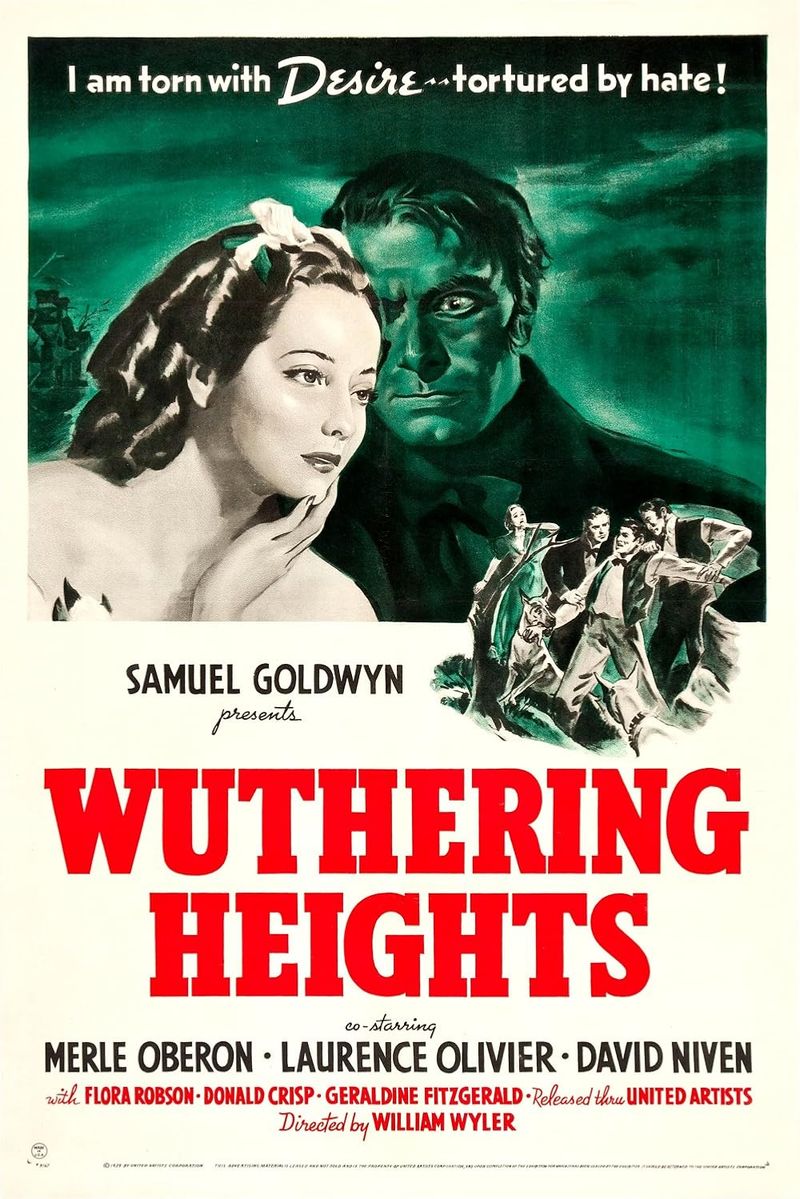
Driven by his fixation on Catherine, Heathcliff spends years exacting revenge on those around them. Their relationship is steeped in manipulation and harm, leaving a trail of ruined lives. Catherine chooses wealth and status in marriage while professing love for Heathcliff, creating a web of misery.
Heathcliff abuses his wife and systematically destroys the next generation to punish Catherine’s family. The story presents this obsessive, vengeful behavior as proof of eternal love. Their passion causes nothing but suffering for themselves and everyone near them.
Literary classics like this one have taught generations that true love involves suffering, obsession, and dramatic tragedy rather than mutual support and happiness.
13. Atonement
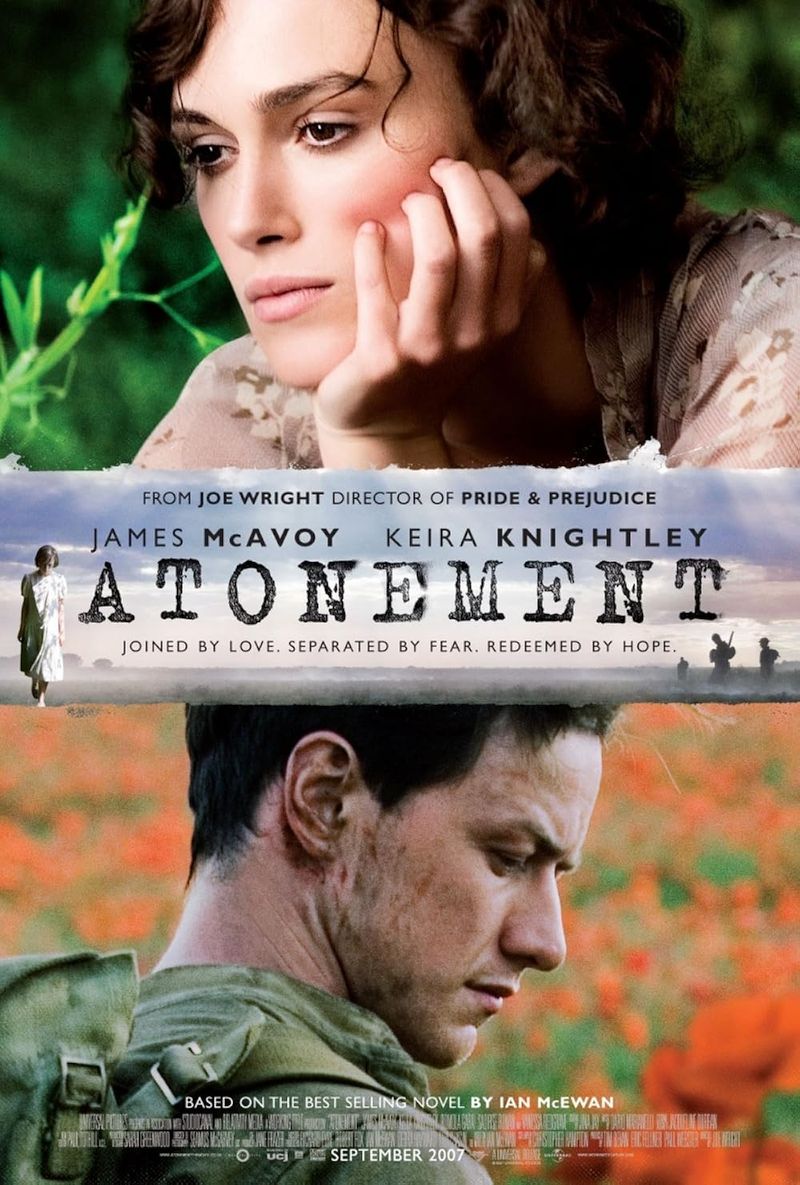
Robbie and Cecilia’s relationship barely begins before Briony’s lies tear them apart, but the film romanticizes their brief connection as epic love. They share one intimate encounter before being separated by false accusations and war. The tragedy focuses on lost potential rather than an actual relationship.
Years of separation based on a misunderstanding get portrayed as romantic rather than simply sad and wasteful. The twist ending reveals that their happy reunion never actually happened. The whole story exists as Briony’s fictional atonement for her childhood lie.
This film suggests that brief intense connections are more meaningful than long-term partnerships, and that suffering for love makes it more real and valuable than happiness.
14. Love, Rosie
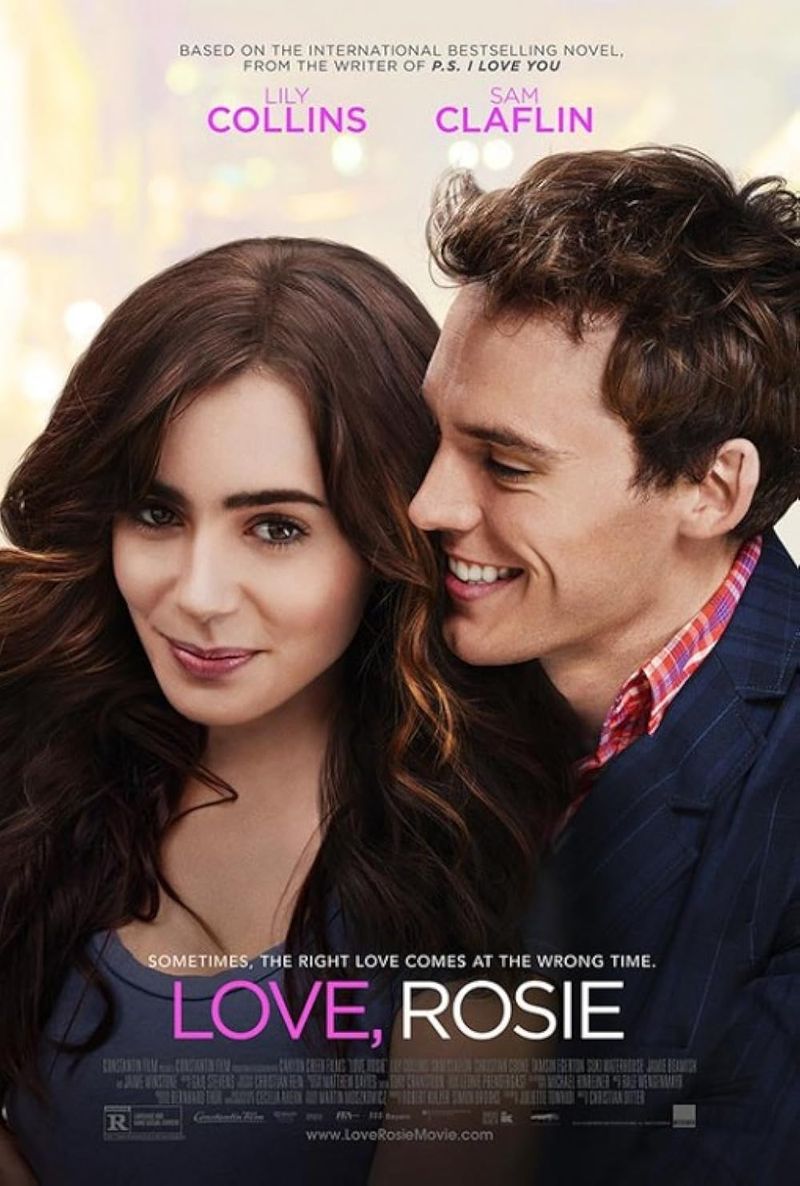
Years pass with Rosie and Alex secretly desiring each other while maintaining separate relationships. Jealousy prompts them to sabotage one another, all under the pretense of friendship. Their failure to speak honestly leads to repeated miscommunications and missed chances.
Their inability to have one straightforward conversation ruins decades of potential happiness. The film treats their poor communication as fate keeping them apart rather than their own choices. They waste their youth on other relationships while holding onto secret feelings.
This story romanticizes the idea that timing matters more than honesty, and that pining silently for someone is more romantic than simply telling them how you feel.
15. Before Sunrise
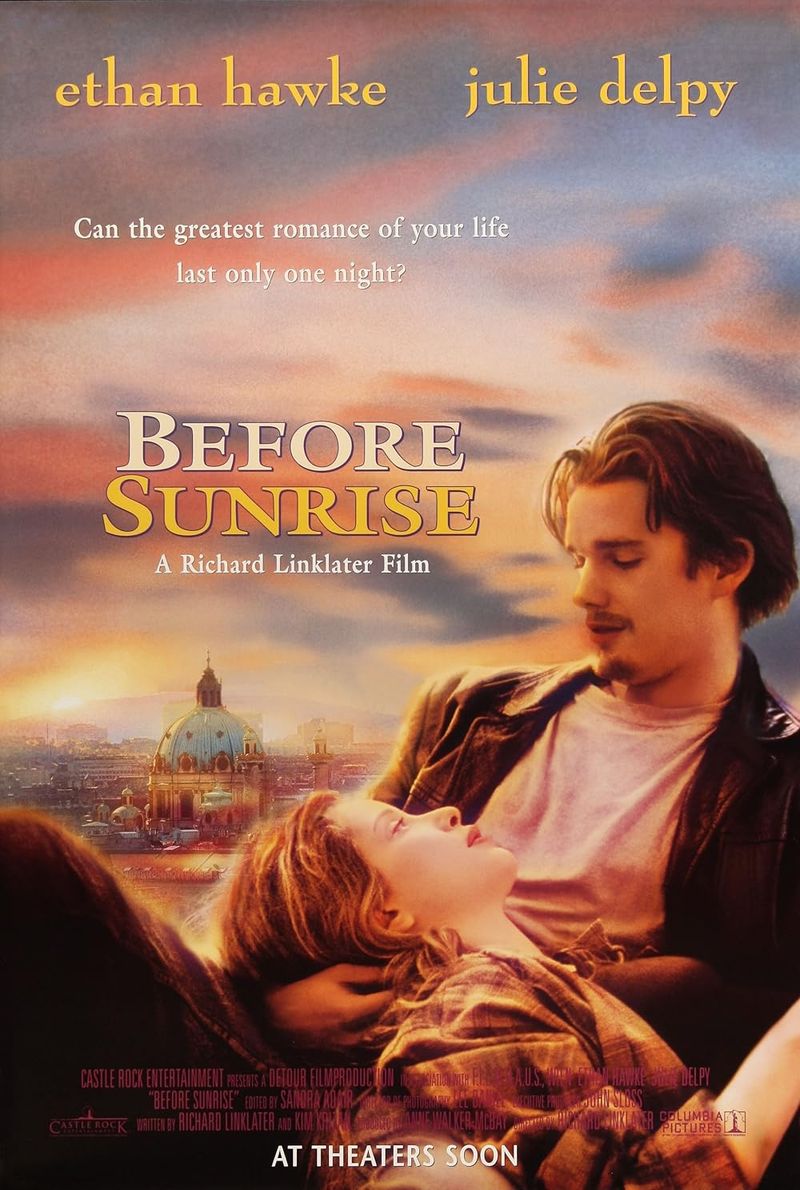
Jesse and Celine spend one night together in Vienna, sharing deep conversations and forming an intense connection. While seemingly healthier than other films on this list, the story romanticizes the idea that brief encounters are more meaningful than real relationships. They make a pact to meet again without exchanging contact information, relying on fate instead of practical planning.
The film glorifies the fantasy of a perfect stranger rather than the work of building actual intimacy over time. Their idealized night together can’t include the reality of compromise, disagreement, or daily life. The sequels show consequences, but the first film celebrates impulsive romance.
Many viewers learn that magical instant connections matter more than sustained effort and communication in building lasting love.

Comments
Loading…